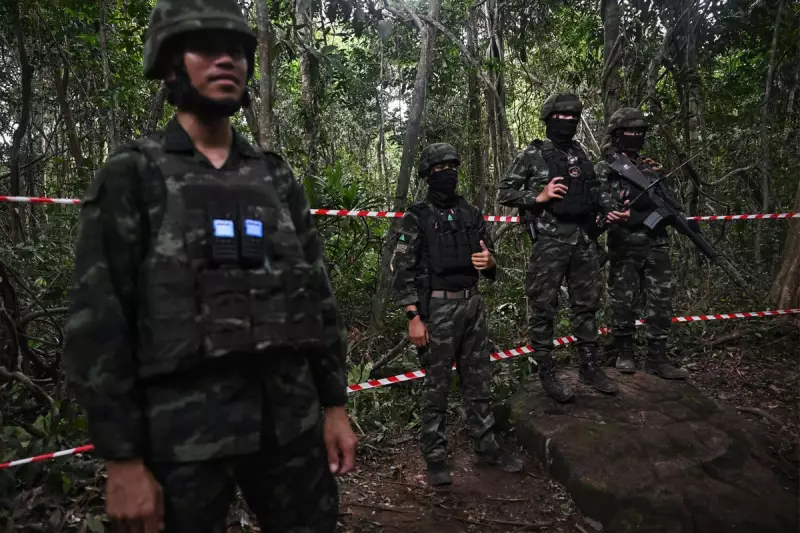
A fragile ceasefire, brokered by the United States, has disintegrated after fresh fighting erupted on the disputed Thailand-Cambodia border, resulting in at least one fatality and shattering hopes for a lasting peace.
Ceasefire Shattered in Renewed Hostilities
Renewed combat broke out on Wednesday along the contentious frontier, directly undermining the truce that was previously negotiated. The violence led to the death of one soldier and left several others injured. This escalation comes just a day after former US President Donald Trump remarked that working on the ceasefire was 'more fun' than playing golf, a statement that now rings hollow amidst the resurgence of conflict.
The immediate trigger for this breakdown was Thailand's suspension of a peace deal on 10 November. This decision came after four Thai soldiers were wounded by a landmine. In the aftermath of the latest clashes, both nations have returned to familiar patterns of blame. Cambodian authorities assert that Thai troops initiated the conflict by opening fire, while Thailand maintains its soldiers only discharged warning shots in a necessary act of self-defence.
A Century-Old Dispute and Escalating Tensions
The border between Thailand and Cambodia has been a source of tension for over a century, but recent months have seen a dangerous intensification. The current crisis is fuelled by a dispute that flared violently in July, resulting in a five-day conflict that claimed the lives of at least 48 people and forced an estimated 300,000 from their homes.
The latest incident was preceded by a specific diplomatic demand from Thailand. On Tuesday, the Thai government demanded a formal apology from Cambodia for allegedly laying new landmines in the contested area—an accusation that Cambodian officials firmly deny. This exchange of allegations highlights the deep-seated mistrust and the complex challenges facing any meaningful diplomatic resolution.
International Diplomacy and the Path Forward
The collapse of the US-mediated agreement represents a significant setback for international efforts to stabilise the region. The involvement of a high-profile figure like Donald Trump had initially raised hopes for a durable solution. However, the rapid unravelling of the ceasefire underscores the profound difficulties in reconciling the long-standing territorial claims and recent grievances between the two Southeast Asian nations.
With the situation on the ground remaining volatile and both sides entrenched in their positions, the prospect for a swift return to negotiations appears dim. The international community is now watching closely to see if diplomatic channels can be reopened to prevent a further, and potentially wider, escalation of violence along this troubled border.





